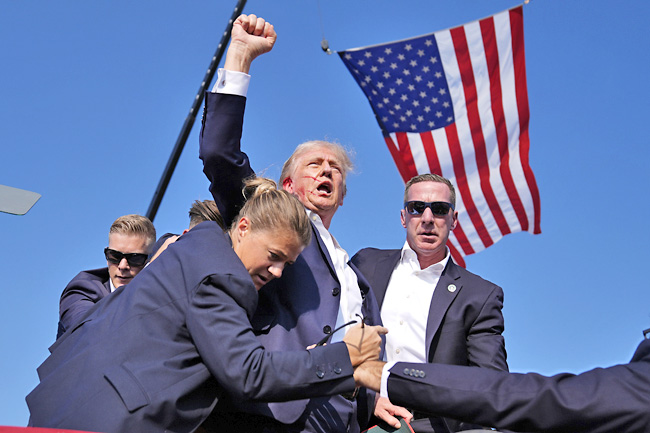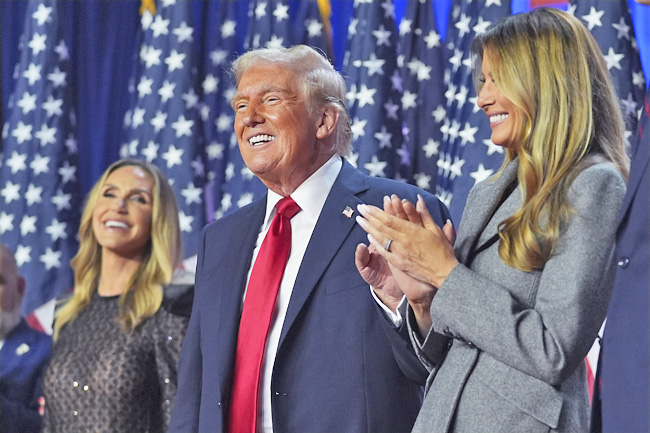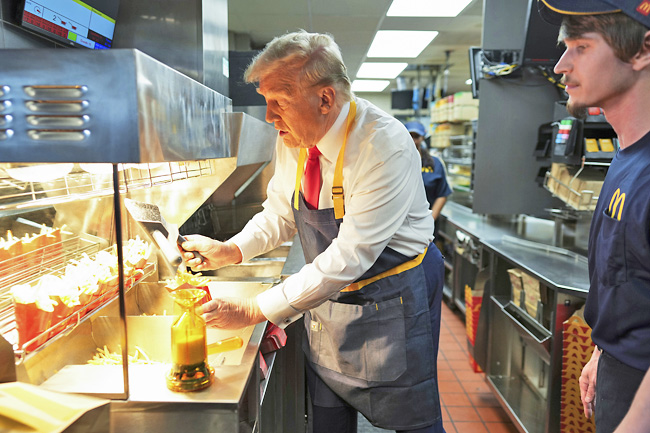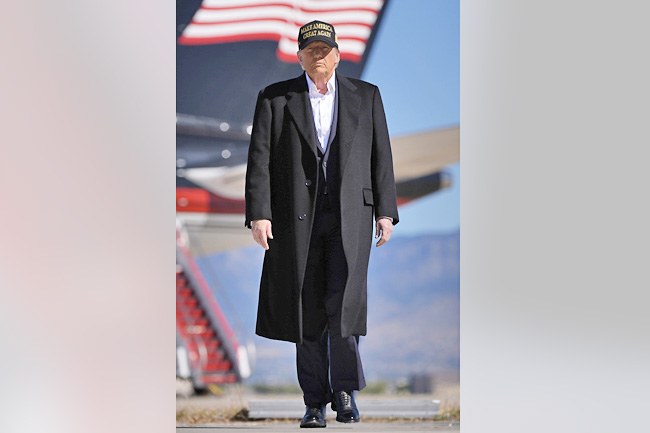WEST PALM BEACH (AP) – As he bid farewell to Washington in January 2021, deeply unpopular and diminished, Donald Trump was already hinting at a comeback.
“Goodbye. We love you. We will be back in some form,” Trump told supporters at Joint Base Andrews, where he’d arranged a 21-gun salute as part of a military send-off before boarding Air Force One. “We will see you soon.”
Four years later, he’s fulfilled his prophecy.
With his commanding victory over Vice President Kamala Harris, Trump achieved a comeback that seemed unimaginable after the 2020 election ended with his supporters violently storming the Capitol after he refused to accept his defeat.
In the years that followed, Trump was widely blamed for Republican losses, indicted four times, convicted on 34 felony counts, ruled to have inflated his assets in a civil fraud trial and found liable for sexual abuse. He still faces fines that top more than half a billion dollars and the prospect of jail time.
But Trump managed to turn his legal woes into fuel that channeled voters’ anger. He seized on widespread discontent over the direction of a country battered by years of high inflation.
And he spoke to a new generation – using podcasts and social media – to tell those who felt forgotten that he shared their disdain for the status quo.
And he did so while surviving two attempted assassinations and a late-stage candidate replacement by Democrats.
“This was a campaign of October surprises,” Trump campaign senior adviser Chris LaCivita said hours after clinching victory. “When you think about it, whether it was indictments, convictions, assassination attempts, the switching out of the candidate – I mean it was a campaign of firsts on so many different levels.”




‘FIGHT! FIGHT! FIGHT!’
Trump had entered the general election after sweeping the GOP primaries and routing a crowded field of candidates. The indictments against him dominated news coverage and forced even his rivals to rally around him as he cast himself as the victim of a politically motivated effort to hobble his candidacy.
A late June debate against President Joe Biden – which the Biden campaign had pushed for – ended disastrously for the president, who struggled to put words together and repeatedly lost his train of thought.
When Trump arrived at the Republican National Convention to formally accept his party’s nomination for the second time weeks later, he seemed unstoppable. Just two days earlier, a gunman had opened fire at his rally in Butler, Pennsylvania, unleashing a hail of bullets that grazed his ear and left one supporter dead.
After the gunman had been killed, Trump stood, surrounded by Secret Service agents, his face streaked by blood, and raised his fist in the air – shouting “Fight! Fight! Fight!” – as the crowd erupted into cheers. The moment became a rallying cry for his campaign.
“If you want to make somebody iconic, try to throw them in jail. Try to bankrupt them. If you want to make somebody iconic, try to kill him,” said a longtime Republican operative Roger Stone, who has known Trump for 45 years and was pardoned by the former president.
“All of those things failed. They just made him bigger and more powerful as a political force. Every one of those things turbocharged his candidacy.”
A SUDDEN REVERSAL
Trump had appeared to be on a glide path to victory. But just days later, Democrats, fearing a blowout loss and panicking over Biden’s age and ability to do the job for another four years, successfully persuaded the president to step aside and end his bid, making way for Harris’ history-shattering candidacy.
Trump campaign aides insisted they were prepared. Videos for the convention had been cut with two different versions: One featuring Biden, the other Harris, and versions attacking both were played on the big screens in Milwaukee.
But the change sent Trump into a tailspin. He had spent millions, he complained, beating Biden, and now had to “start all over” again – this time facing a candidate who was not only nearly two decades younger, embodying the generational change voters had said they wanted, but also a woman who would have become the country’s first female president.
In one particularly hostile appearance, Trump questioned the racial identity of the first woman of colour to serve as vice president and to lead a major-party ticket before the National Association of Black Journalists.
HARRIS FAILS TO MAKE HER CASE FOR CHANGE
Trump’s campaign aides quickly pivoted to taking Harris down. They belittled her as unserious, with ads focused on her laugh.
They labeled her “dangerously liberal”, highlighting the progressive policies she had embraced when she first ran for president in 2020. They argued her “joyful warrior” messaging was fundamentally at odds with the sour mood of the electorate, and responded gleefully to Harris telling voters “We are not going back” when many voters seemed to want just that.
Though Trump had left office with a dismal approval rating, that number had ticked up considerably in the years that followed, amid concerns over high prices and the influx of migrants who entered the country illegally after Biden relaxed restrictions.
Harris’ momentum was just a sugar high, they said. Campaign pollster Tony Fabrizio called it “a kind of out-of-body experience where we have suspended reality”.
Soon, they predicted, what they dubbed the “Harris honeymoon” would subside, and it did.




